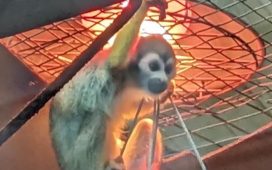It’s an election that has spawned meme wars, full-size billboards, trash talking between rival campaigns, and now, accusations of Russian electoral fraud. Organisers of New Zealand’s bird of the year contest – a wholesome poll that raises awareness about the plight of native species – have denied claims the 2019 result was marred by fowl play after revealing a high number of votes cast from other countries.
“People are coming up with all kinds of theories about Russian involvement in New Zealand elections,” said Megan Hubscher, a spokesperson for Forest and Bird, the independent conservation group that runs the annual vote. “But we can assure everyone that everything seems above board this time around.”
Throughout the contest’s 14-year history, organisers have beefed up electoral protections in response to hacking attempts, and the 2019 poll was the most secure yet. In 2018, 300 fraudulent votes were cast in the online ballot by Australians attempting to rig the contest – perhaps childishly – in favour of the shag.
Monday’s result featured votes cast from 92 countries, Hubscher said, with the greatest number of overseas ballots submitted from Australia, with 684 votes, followed by the UK (682), the US (563), and Russia (335).
But she said a new feature of the poll that required voters to verify their ballots with a four-digit code appeared to have prevented hacking attempts. While New Zealand Twitter users were quick to form conspiracy theories, Hubscher added that all of the votes from Russian email addresses appeared to be legitimate.
She suggested that innocent interest from Russian ornithologists might be responsible.
“New Zealand actually shares birds with Russia,” she said. “We have the bar-tailed godwit that makes an annual round trip.”
The winner of the 2019 poll, announced on Monday, was not the godwit but the hoiho, or yellow-eyed penguin – a beautiful but antisocial bird that communicates by screaming. It is the rarest penguin in the world.
In 2018, title was taken out by the “clumsy, drunk” kererū – a native pigeon that has been known to eat so many fermented berries that they sometimes fall out of trees and have to be taken to wildlife centres to sober up.
Hubscher said New Zealand’s unique birds had captivated audiences beyond the nation’s shores. As well as playing host to the largest number of penguin and seabird species of any country, she said, New Zealand was also home to the world’s world’s heaviest parrot, the kākāpō – which is nocturnal and cannot fly.














